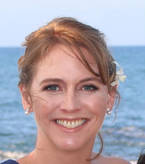|
Information is more accessible than ever, and more content is being created on a daily basis than existed in the world 100 years ago. In fact, three years ago, IBM predicted that by 2010 the amount of digital information on the Internet would be doubling every 11 hours! I am not sure if we are there yet, but that milestone is likely not that far off.
As recent as the middle of last century it was reasonable to assume that a scientist or doctor was generally knowledgeable about any type of science or medicine; they could stay apprised of new discoveries, theories or applications in all different fields of study through regular reading of scientific or medical journals. Now, due to the sheer volume of information and advances occurring around the world, scientists and doctors are only able to keep up with their area of study or specialization, and it is unreasonable to think they would have a level of depth and greater understanding in all areas outside of their particular field. <div style="border-top: thin gray solid; border-bottom: thin gray solid; padding: 20px; margin: 20px 2px; width: 46em;"><a href="http://oreilly.com/catalog/9780596157036/"><img style="float: left; border: none;padding-right: 10px;" src="http://cdn.oreilly.com/oreilly/promos/9780596157036thumb.jpg" /></a>Sarah Sorensen is the author of <a href="http://oreilly.com/catalog/9780596157036/">The Sustainable Network: The Accidental Answer for a Troubled Planet</a>.<br /><br />The Sustainable Network demonstrates how we can tackle challenges, ranging from energy conservation to economic and social innovation, using the global network -- of which the public Internet is just one piece. This book demystifies the power of the network, and issues a strong call to action.<br /><br clear="left"></div> So, how do we navigate this digital information world? How do we try to maintain a real-time understanding of all the things that are important to us? Well, this is where the services and news feeds offered by the Twitters, and Facebooks, and Googles of the world come into play. Through short bursts of information, we are able to stay up to date on our friends and family, local and global communities, activities of interest, etc. Through innovative use of technology and the myriad of applications and services that are delivered by the network, we are constantly finding new and useful ways to search, synthesize and package information, distribute it to interested parties and foster a dialogue that can be global in scope. But is this enough? As we struggle to stay on top of everything that crosses our paths, are we missing opportunities to get more out of the information? Are we becoming too much of a "right now" society? Are we able to delve into an issue at length or stick with a topic that doesn't have a quick pithy answer? My fear is that in our quest for quick information, we may be losing a vital tool in books that have helped us for generations formulate new thoughts, prod and poke at existing conventions, think through the universe's toughest questions and open our eyes to the possibilities. The book is one of the few written word formats that enables topics to be explored and expanded upon in hundreds of pages. As the journalist Edward P. Morgan said, "A book is the only place in which you can examine a fragile thought without breaking it, or explore an explosive idea without fear it will go off in your face. It is one of the few havens remaining where a man's mind can get both provocation and privacy." But, it seems its value in this Digital Age is diminished, as the reading of books has been been on a steady decline for decades. Back in 1998, <a href="http://74.125.155.132/search?q=cache:FEoN1mMBvCcJ:news.bbc.co.uk/hi/english/talking_point/newsid_82000/82321.asp+reading+is+dead&cd=6&hl=en&ct=clnk&gl=us">surveysin the U.K.</a> showed that "more than one in seven adults had not read a book in the last year and more than one in three has never visited their local library." A survey in 2007, found <a href="http://www.usatoday.com/news/nation/2007-08-21-reading_N.htm">one in four people read no books during a year</a>. Folks like Steve Jobs have even been <a href="http://bits.blogs.nytimes.com/2008/01/15/the-passion-of-steve-jobs/#more-829">quoted</a> as saying "people don't read anymore." But, as I previously noted, the amount of content that is created and consumed on a daily basis online continues to grow at an astronomical rate. So perhaps it is the format that is dead? Perhaps the book as we know it is too antiquated, explaining why it's not drawing our attention as it once did. There are simply too many types of information competing for our time. (Fortune had an interesting cover article on the Future of Reading that's worth checking out.) This is one reason why the iPad has excited my attention - it could be a road back to the written word of books. As an author, I am interested in the idea that extra features or updates to <a href="http://techbus.safaribooksonline.com/9780596806699">my book </a> could keep the content current and readers engaged on the topic. It can go beyond the search and bookmarking features (which are very cool by the way) offered for smaller form factors, such as the iPhone, and really start to create a more dynamic and interactive book reading experience. We have seen news sites incorporate video and other rich media applicaitons into their reporting and <a href="http://www.nytimes.com/2010/02/23/education/23tufts.html?th&emc=th">students embed video clips </a>into their college application submissions, so it's not a stretch to think that we will soon be seeing commentary from the author or <a href="http://www.safaribooksonline.com/events/2010/SustainableNetwork.html">upcoming webcasts or talks</a> on topics that relate to the book. I can imagine playing games or taking polls or viewing movie clips for the stories we are reading (though in my mind the movie version is often a shadow of what the imagination can conjure.) I am for anything that will help us reinvent books and inspire a love of reading. Because without books, there is the fear that everyone will know just a little about everything, and have a good understanding about nothing; we will be experts in our lives, but leave thoughts, opinions and worlds outside our immediate needs unexplored. With new technologies, such as the iPad, I see that the future of books can be relevant and interactive, helping us once again get lost in a good story or cut through all the quick snippets of information to delve into something in a meaningful way. It has to be, because the content of books is what will help us sustain the deep thinking and in-depth analysis that is required to achieve those "aha" moments that revolutionize the way we live and are needed to solve our biggest problems.
1 Comment
|
Sorensen
|


 RSS Feed
RSS Feed